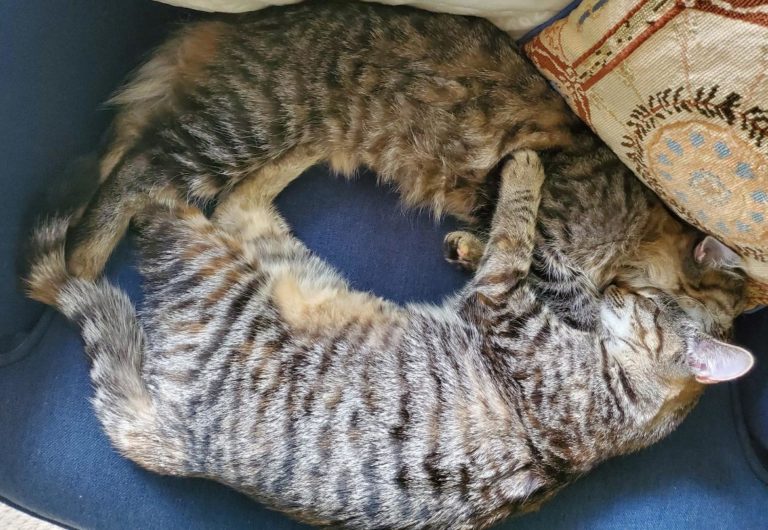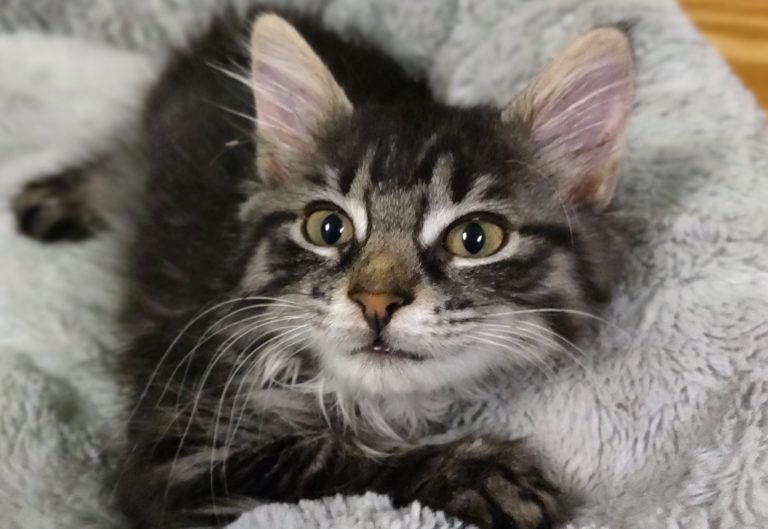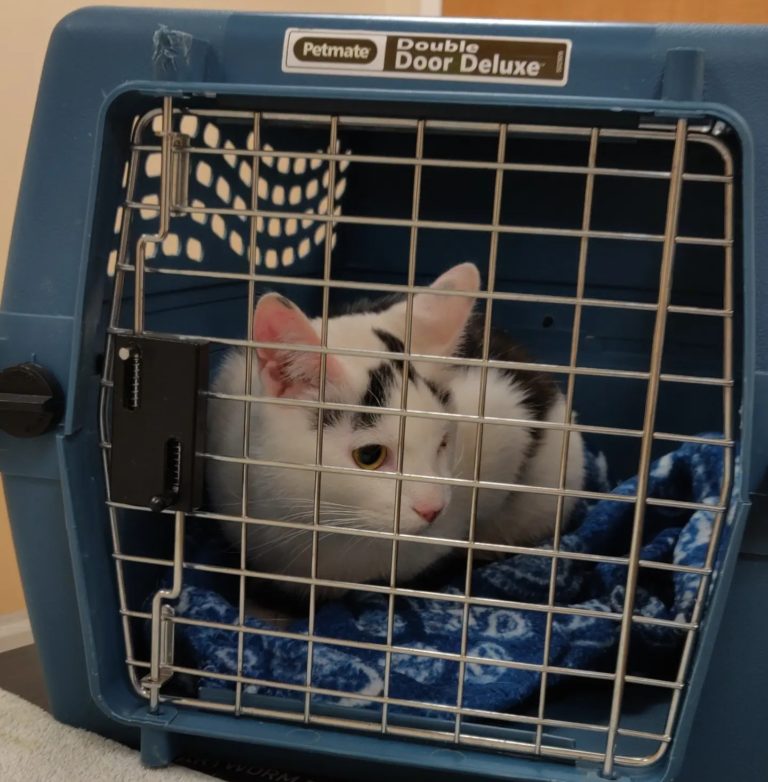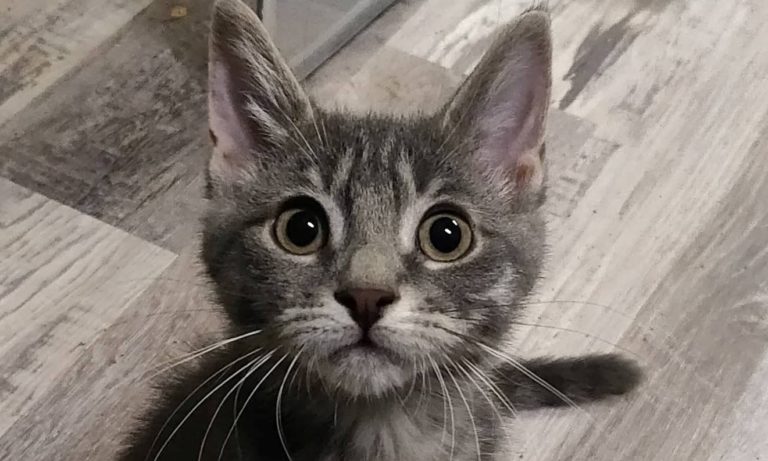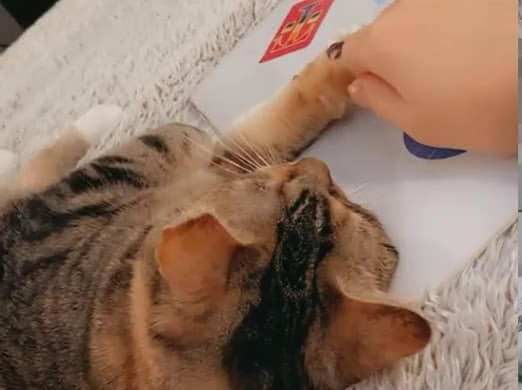Our Application Review Team dislikes having to decline some of the people who apply to adopt our kitties. Unfortunately, the team members regularly have to decline applicants for poor veterinary care history of their prior or current pets.
The number one reason we hear when we tell the applicants why they are being declined is “But she’s an indoor-only cat; I didn’t think indoor cats need to go to the vet every year.” We’ve even encountered people who never took their cat to a vet for ten years until it suddenly became very ill and had to be euthanized (because of something that could have been prevented if caught early and treated by a vet.)
BEING A TOUGH GUY
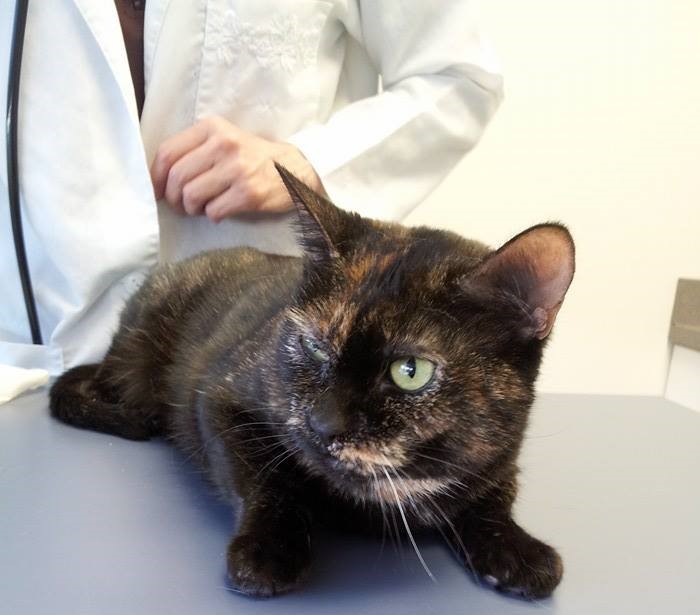
The big problem is that cats are known to be extremely good at being a tough guy and hiding when they are in pain. This is commonly attributed to their instinct to protect themselves and not show any vulnerability to potential predators. That’s why it’s important to always be in tune with your kitty’s behavior, so you will notice any signs that something may be wrong, then act accordingly.
The big problem with that is that too often, whatever is wrong with a kitty is already very bad by the time the cat is showing those signs to its human guardian. Because the signs aren’t always obvious, the human might spend a period of time second-guessing themself and doubting that something is actually wrong.
For example, many pet guardians don’t often inspect their cat’s mouth and assume because Kitty is eating normally that all is well, only to be mortified to learn at the annual vet exam that their kitty has an incredibly painful tooth or gum condition, such as resorptive lesions.
Regular annual vet examinations are paramount to identifying health issues before they blossom into dangerous, painful, or even life-threatening situations for your beloved, furry family member. Especially when your kitty starts heading into his golden years, getting senior blood panels can help to identify the beginnings of such common issues as kidney or thyroid problems so that you can start to treat any such issues at the onset to get a better outcome.
VACCINATIONS
Our Application Review Team also commonly hears that applicants didn’t think that their indoor cats need to be vaccinated. Sure, you don’t plan to take your cat outside, but that doesn’t mean the day won’t come where Kitty accidentally gets out. And, believe it or not, if a neighborhood kitty comes up to your window, when Kitty is sitting on the sill one day, you never know what might get transmitted through the screen.

If you are someone who prefers to take that gamble, then it might help to also know that in many states, including Pennsylvania where Cat Tales is located, certain vaccinations are state-mandated, such as the rabies vaccine. The Pennsylvania Department of Agriculture states on it’s website: By PA law, dogs and cats shall be vaccinated against rabies within 4 weeks after the date the dog or cat attains 12 weeks of age, and maintain a current rabies immunity as prescribed by rabies vaccine manufacturers.
The most common, core vaccines that all cats should have include Rabies and the Feline Viral Rhinotracheitis, Calicivirus and Panleukopenia (FVRCP)–commonly known as the “distemper” vaccine.
Depending on your plans to take your cat to a groomer, or other activities where it might be more readily exposed to potential threats, your vet might recommend other, additional vaccines.
All cats and kittens adopted through Cat Tales ae vaccinated for FVRCP and rabies. When adopters sign our adoption agreement, one of the items they are agreeing to is to always keep their cat up-to-date on it’s wellness and vaccines.
LONG STORY SHORT
When you take on the responsibility of becoming a pet guardian, you are responsible for doing everything in your power to keep that animal healthy and happy. Your kitty can’t speak and tell you when something is wrong. She is reliant on you to take her for regular wellness exams and to keep her vaccinations current.
Oftentimes, when we decline an applicant for poor veterinary care history, they respond by telling us that we will never find a more loving adopter than them. However, we believe that the best and most important way to show your kitty how much you love her is to do what you should to ensure she has a healthy, happy, long life under your care. That starts with annual wellness exams and vaccines.

